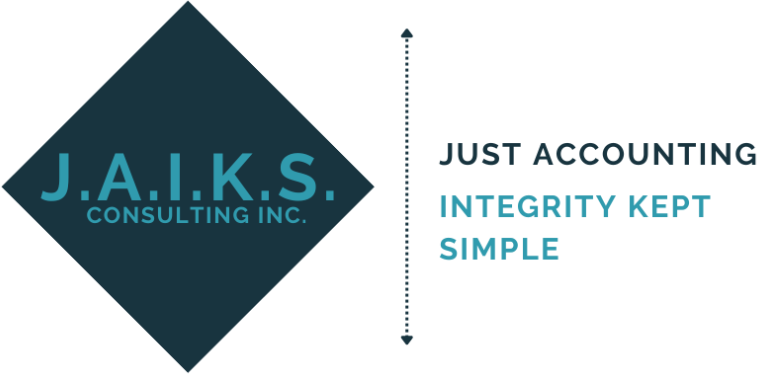J.A.I.K.S. BLOG
Welcome to J.A.I.K.S. Blog, a place where we will provide you with a variety of resources on accounting, taxation and other related subjects suited for both individuals and/or their businesses.
We hope you can find the answers to your questions and/or curiosities, and always know we are here to help if you need more.
Follow us on Facebook or find us on LinkedIn - we are always eager to give you more!
Disclaimer:
The content provided in this blog is for general informational purposes only and is not intended as professional accounting, tax, or financial advice. While efforts are made to ensure the accuracy and timeliness of the content, errors or omissions may occur. The content does not constitute a client-advisor relationship. Readers should consult with a Chartered Professional Accountants or other financial professional for advice tailored to their specific needs. We are not liable for any actions one might take based on the information provided in this blog.
Deducting Vehicle Expenses when Self-Employed
If you are self-employed, you may claim automotive expenses while conducting business. If you use your car for personal and business travel, only expenses for business can be deducted. If you use it exclusively for business, you can expense all costs.
It is important to note that driving to and from the office is not deductible.
Business-related driving includes:
- Meeting clients
- Attending conferences
- Running errands such as purchasing supplies
- Visiting customers
The kind of vehicle will also determine what expenses you can deduct. There are four main types of vehicles according to CRA rules:
- motor vehicles
- passenger vehicles
- zero-emission passenger vehicle (ZEPV)
- zero-emission vehicle (ZEV)
You will need to understand the rules as the kind of vehicle will affect the expenses you can deduct.
Keeping Records
There are two ways to claim the distance you drive: the full and the simplified logbook method. You must keep the receipts and invoices related to your automotive expenses for the year.
Full Logbook Method
You must maintain an annual driving logbook and retain all receipts for your car.
Simplified Logbook Method
You must log a year’s mileage and establish a base year. After that, you can use 3 months in subsequent years to determine the eligible expenses you can claim. This amount must be within 10% of the base year’s percentage.
The logbook must contain
- the total distance driven annually
- odometer readings at the start and year’s end
- a summary of your business and personal use
For each business trip, you must log the:
- Date
- Purpose
- Destination
- Kilometres travelled
Receipts and invoices
Motor vehicle expenses must be reasonable, and, as before, all receipts will need to be kept for each year to justify the costs.
Deductible expenses include:
- Licence & registration fees
- Fuel & oil
- Electricity (for zero-emission vehicles)
- Insurance
- Maintenance & repairs
- Lease costs
- Interest if you have bought the vehicle
Calculating The Deduction You Can Claim
By summarizing the log, you can determine the business use of the vehicle. Calculate the total distance driven, then determine the total personal kilometres. Calculate the business kilometres for the same period. Dividing the business distance by the total distance determines the business use of the vehicle. To calculate your mileage deduction, multiply your expenses by the percentage of business kilometres.
See some CRA examples of how to calculate the deduction here.
Finally, you must retain your records. The CRA requires you to save records of any mileage deductions for six years after submitting your tax return. Your documents will ensure that you can support your claim if the government calls upon you.
If you need assistance in setting up your log method or calculating your deduction, please get in touch with our office.

Comments